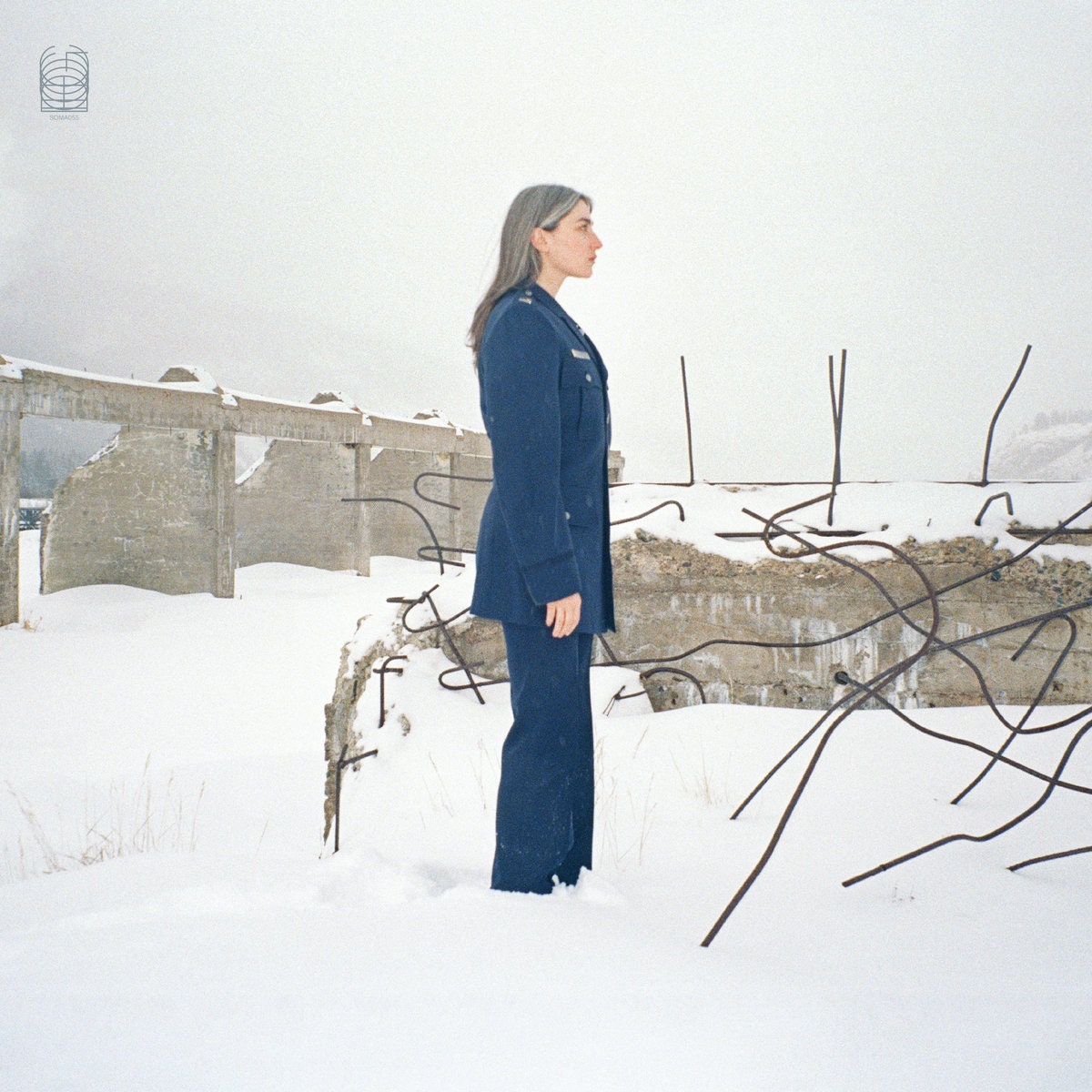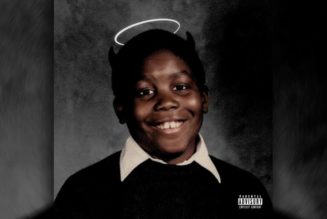A held chord on a pipe organ can signal a looming arrival—of a Boris Karloff character or, in a brighter register, the bride-to-be. Such a stately chord encapsulates anticipation. It makes its listener cognizant of waiting, because the instrument can sustain such a chord forever. That is how pipe organs function, and it is one reason they are perfect for churchly representations of heavenly—that is, eternal—choruses.
By contrast, if you hear a sustained note on a piano or saxophone, let alone sung by a singer, you know it has a finite lifespan: until the instrument—or lungs—give way. The limitless sustain of an organ is an innate superpower. Since you sense the organ’s stamina is inexhaustible, you know the player has complete discretion as to when whatever happens next will … actually … occur.
When that musician is Kali Malone, be prepared to wait—and, following momentary activity, to wait again. Malone is a poet of attenuation. The compositions on All Life Long proceed at the considered pace of a chess-by-mail match. Each step is a marker of choices made. As a listener, you pay attention not just to those steps but to the overtones that fill the air in between. Each chord is a burr of wonderment. To listen closely is to find compositions within, as waveforms meld, tones circle, and patterns shift with a dynamism initially belied by the seeming stasis.
You’ve heard of forest bathing? Welcome to cathedral bathing, to the dark romance of the steady descents amid “Fastened Maze,” and to the methodical harmonic brick-laying of “Prisoned on Watery Shore.” Malone’s organ works can feel as if she is spelunking through cavernous frequencies, seeking to understand just how far the darkness extends. She maps territory fastidiously, and then serves up her field work in composition form. At the most extreme, she might finish a song—in this case, the title track—by holding its closing chord for more than a full minute. (One foresees the inevitable scandale when a Spotify bot accidentally eradicates such a track as part of its war on white noise.) Even when Malone’s compositions adopt a more human timescale, as on “Moving Forward,” the impact is heady.
Stephen O’Malley, of doom-metal band Sunn O))), accompanies Malone on the album, which is released by his record label Ideologic Organ. The pairing makes perfect sense: The two share penchants for dense harmonies, exotic tunings, and ceremonial grandeur. It is a sign of Malone’s decade-long maturation as an artist that, at 30, she has come to make practical use of the drones that she once let unfurl on their own. The wooly sawtooth waves that filled out last year’s Does Spring Hide Its Joy brought to mind the raga-inspired tonalities of La Monte Young. Here they are raw material for more traditional, if still funereal, compositions. Malone’s latest work challenges today’s drone musicians to retain the delectable, psychedelic whir of drones while using them in the service of something melodically engaging.
All Life Long is not all pipe organs. The album rotates through organ, choir, and brass ensemble. The works for voice suggest the 16th-century polyphony of Palestrina. “Passage Through the Spheres” opens with one singer panned all the way to the right; shortly after another singer enters from the left. The voices alternately reflect, presage, and complete each other’s lines. The exaggerated stereo separation signals Malone’s camaraderie with Janet Cardiff’s landmark sound-art installation featuring the music of Renaissance composer Thomas Tallis, 40 Part Motet, which uses individual, freestanding speakers for each of its titular vocal lines, allowing the listener to walk among what is, in effect, a choir of ghosts.
While Malone has employed horns in the past, as on 2018’s Cast of Mind and 2022’s Living Torch, that was in service of drones—chamber instruments as synthesizer modules, in a manner of speaking. On All Life Long, she is truly writing for brass ensemble, yielding a regal quality: less goth, more Sun King (minus the filigree of the Baroque era). In particular, elegant horns on tracks like “Retrograde Cannon” and “Formation Flight” echo the dignified arrangements of David Byrne’s The Knee Plays, music the Talking Heads cofounder composed for Robert Wilson’s opera the CIVIL warS. In Malone’s and Byrne’s pieces alike, you can hear modern sensibilities merging with antiquated techniques.
Malone does inquisitive listeners a favor by repeating two works in different forms. The title piece, first played on organ, appears toward the end of All Life Long in a voice setting that seems quicker, less ethereal. The second version also reveals the source of the album’s title, a mournful poem, “The Crying Water,” by 20th-century Welsh literary figure Arthur Symons. “No Sun to Burn” is performed first by brass, with enthralling high points, and then later on organ, more delicate and tenuous.
Malone is among a cadre of 21st-century musicians breathing new life into organs. Others include Olivia Block, Robert Curgenven, Sarah Davachi, Lawrence English, FUJI|||||||||||TA, and Claire M Singer. They do so coincident with the ongoing deconsecration of many churches. Malone has acknowledged this tension in pieces like “Sacer Profanare,” from 2019’s The Sacrificial Code. It’s a risky endeavor; were her music not so moving, it might invite accusations of purloined gravitas. The addition of vocal polyphony on All Life Long intensifies Malone’s engagement with such liturgical themes, and she nudges the matter further with her text selection for “Passage Through the Spheres.” Sung in Italian, it could be mistaken for a Vatican homily, but it is quite the contrary. The source is an essay by philosopher Giorgio Agamben that quotes Trebatius Testa, a 1st-century BC Roman jurist, on the topic of perceived irreligiosity: “In the strict sense, profane is the term for something that was once sacred or religious and is returned to the use and property of men.” The deeply felt lesson of All Life Long is that secular deployment of such resources can itself be a fount of beauty, reflection, and perhaps even revelation.
All products featured on Pitchfork are independently selected by our editors. However, when you buy something through our retail links, we may earn an affiliate commission.










